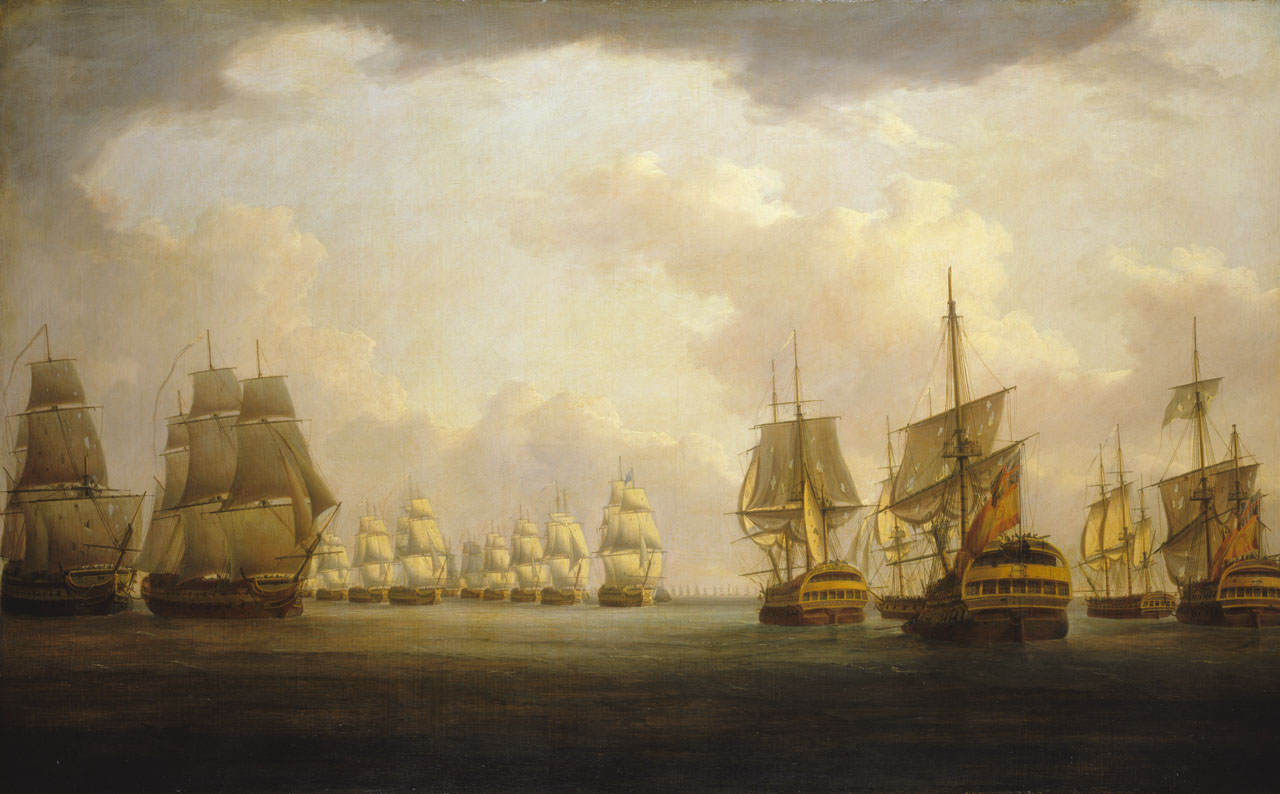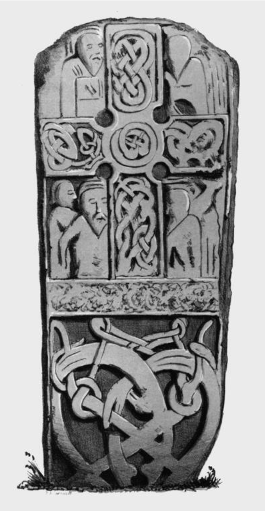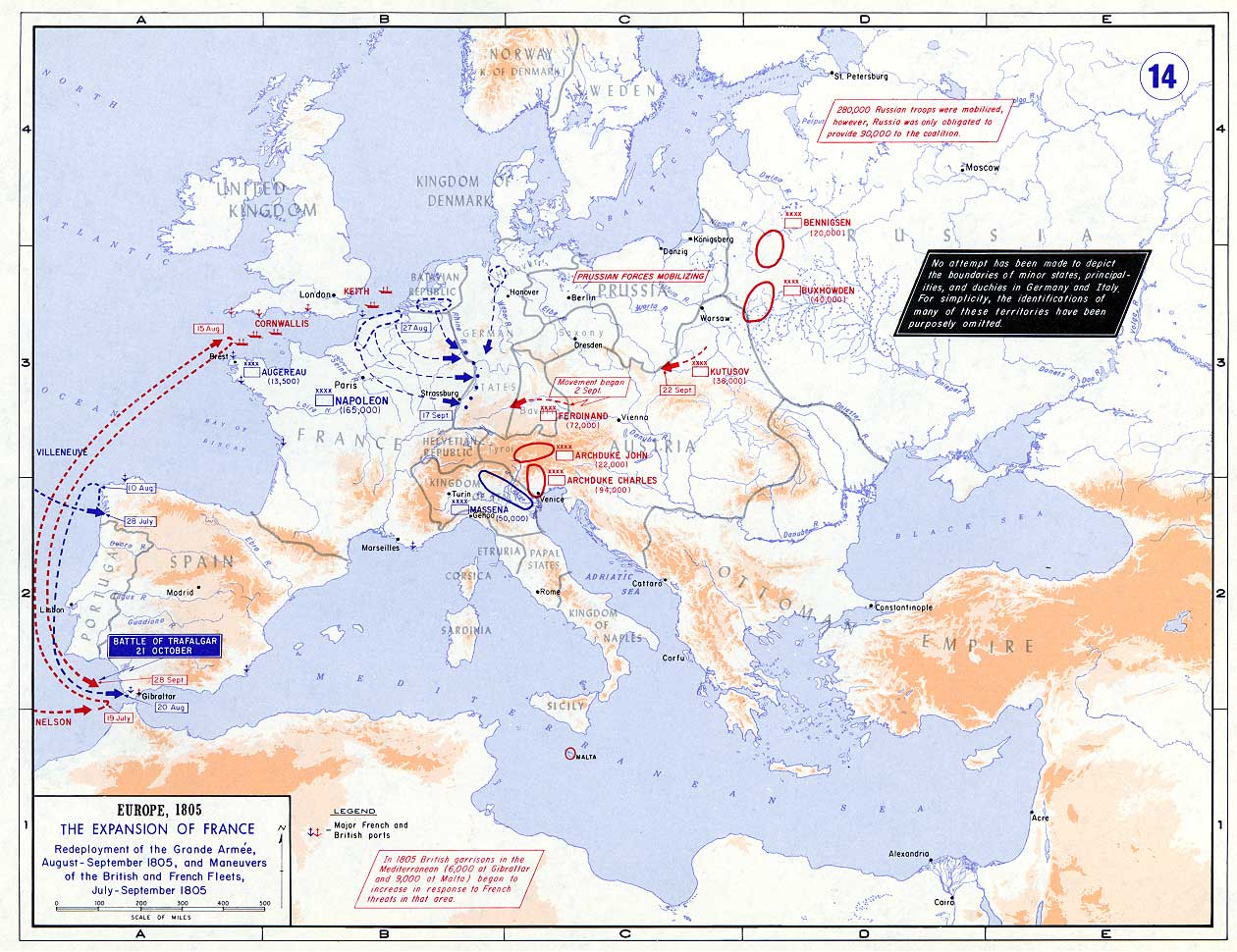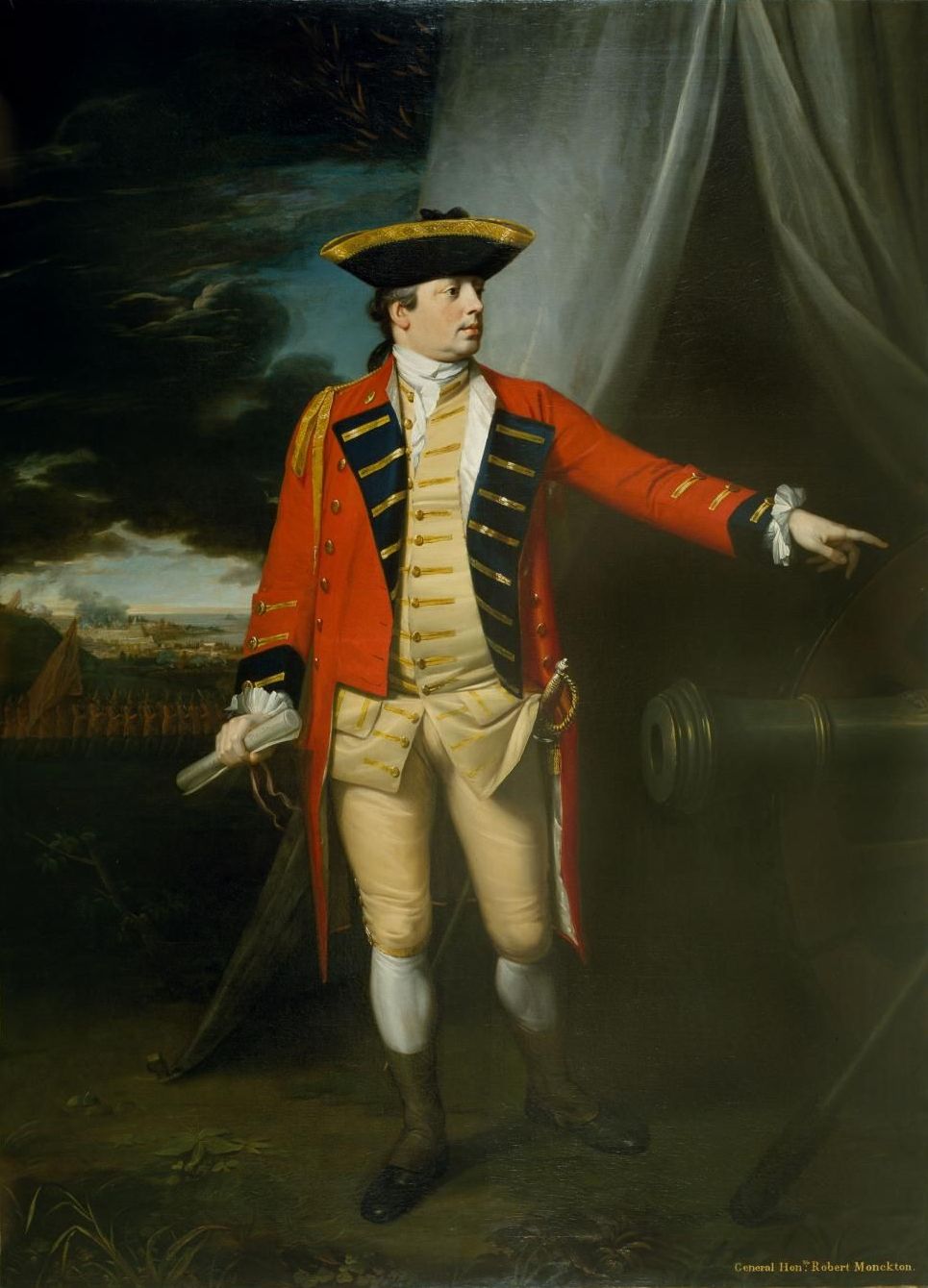|
Robert Calder
Admiral Sir Robert Calder, 1st Baronet, (2 July 174531 August 1818) was a Royal Navy officer who served in the Seven Years' War, the American Revolutionary War, the French Revolutionary Wars and the Napoleonic Wars. For much of his career he was regarded as a dependable officer, and spent several years as Captain of the Fleet under Admiral Sir John Jervis. However, he is chiefly remembered for his controversial actions following the Battle of Cape Finisterre in 1805 which resulted in his court-martial. Though he was removed from his sea command, he was retained in the Navy and later served as Commander-in-Chief of the base at Plymouth. Early life Robert Calder was born in Elgin, Scotland on 2 July 1745, second son to Sir James Calder and Alice Hughes, daughter of Rear-Admiral Robert Hughes.Tracy p.68 His father was the 3rd Baronet Calder of Muirton, who had been appointed Gentleman Usher of the Privy chamber to the queen by Lord Bute in 1761. His elder brother, who su ... [...More Info...] [...Related Items...] OR: [Wikipedia] [Google] [Baidu] |
Elgin, Moray
Elgin ( ; ; ) is a historic town (former cathedral city) and formerly a royal burgh in Moray, Scotland. It is the administrative and commercial centre for Moray. The town originated to the south of the River Lossie on the higher ground above the floodplain where the town of Birnie is. There, the church of Birnie Kirk was built in 1140 and still serves the community. Elgin is first documented in the Cartulary of Moray in 1190 AD. It was created a royal burgh in the 12th century by King David I of Scotland, and by that time had a castle on top of the present-day Lady Hill to the west of the town. The origin of the name Elgin is likely to be Celtic. It may derive from 'Aille' literally signifying beauty, but in topography a beautiful place or valley. Another possibility is 'ealg', meaning both 'Ireland' and 'worthy'. The termination 'gin' or 'in' are Celtic endings signifying little or diminutive forms, hence Elgin could mean beautiful place, worthy place or little Ireland. Histor ... [...More Info...] [...Related Items...] OR: [Wikipedia] [Google] [Baidu] |
Commander-in-Chief, Plymouth
The Commander-in-Chief, Plymouth, was a senior commander of the Royal Navy for hundreds of years. Plymouth Command was a name given to the units, establishments, and staff operating under the admiral's command. Between 1845 and 1896, this office was renamed Commander-in-Chief, Devonport. The Commanders-in-Chief were based in what is now Hamoaze House, Devonport, Plymouth, from 1809 to 1934 and then at Admiralty House, Mount Wise, Devonport, from 1934 until 1996. History The post dates back to around 1743. It extended along the South Coast from Exmouth in East Devon to Penzance in Cornwall. In 1845, this office was renamed as Commander-in-Chief, Devonport, until 1896, when it was altered back to its original name. In 1941, during World War II, elements of Plymouth Command were transferred to Western Approaches Command which was established at Derby House in Liverpool. Meanwhile, Plymouth Command occupied a new combined Headquarters, known as the ''Maritime Headquarters'', ... [...More Info...] [...Related Items...] OR: [Wikipedia] [Google] [Baidu] |
Captain Of The Fleet
Fleet captain (US) is a historic military title that was bestowed upon a naval officer who served as chief of staff to a flag officer. In the UK, a captain of the fleet could be appointed to assist an admiral when the admiral had ten or more ships to command. Historical background In the Royal Navy, during the 18th and 19th centuries, an admiral's flagship might have a ''captain of the fleet'', who would be ranked between the admiral and the ship's captain (or " flag captain"). The "captain of the fleet" would be listed as the ship's "first captain" and would serve as the admiral's chief-of staff. Captain of the fleet was a post rather than a rank in itself, and if its holder's permanent rank was below that of an admiral then he ranked just below the most junior rear-admiral and was entitled to the pay and allowance of a rear-admiral whilst he held the post. The admiral's commands would be issued through his captain of the fleet, and the fleet's responses would be passed back t ... [...More Info...] [...Related Items...] OR: [Wikipedia] [Google] [Baidu] |
Royal Navy
The Royal Navy (RN) is the naval warfare force of the United Kingdom. It is a component of His Majesty's Naval Service, and its officers hold their commissions from the King of the United Kingdom, King. Although warships were used by Kingdom of England, English and Kingdom of Scotland, Scottish kings from the early Middle Ages, medieval period, the first major maritime engagements were fought in the Hundred Years' War against Kingdom of France, France. The modern Royal Navy traces its origins to the English Navy of the early 16th century; the oldest of the British Armed Forces, UK's armed services, it is consequently known as the Senior Service. From the early 18th century until the World War II, Second World War, it was the world's most powerful navy. The Royal Navy played a key part in establishing and defending the British Empire, and four Imperial fortress colonies and a string of imperial bases and coaling stations secured the Royal Navy's ability to assert naval superior ... [...More Info...] [...Related Items...] OR: [Wikipedia] [Google] [Baidu] |
Battle Of Cape Finisterre (1805)
In the Battle of Cape Finisterre (22 July 1805) off Galicia, Spain, the British fleet under Admiral Robert Calder fought an indecisive naval battle against the combined Franco-Spanish fleet which was returning from the West Indies. In the ensuing battle the British captured two Spanish ships of the line, but failed to prevent the joining of French Admiral Pierre de Villeneuve's fleet to the squadron of Ferrol and to strike the shattering blow that would have freed Great Britain from the dangerBrytant p. 154 of an invasion. Calder was later court-martialled and severely reprimanded for his failure and for avoiding the renewal of the engagement on 23 and 24 July. At the same time, in the aftermath Villeneuve elected not to continue on to Brest, where his fleet could have joined with other French ships to clear the English Channel for an invasion of Great Britain. Strategic background The fragile Peace of Amiens of 1802 had come to an end when Napoleon formally annexed th ... [...More Info...] [...Related Items...] OR: [Wikipedia] [Google] [Baidu] |
War Of The Third Coalition
The War of the Third Coalition () was a European conflict lasting from 1805 to 1806 and was the first conflict of the Napoleonic Wars. During the war, First French Empire, France and French client republic, its client states under Napoleon I and its ally Spain opposed an alliance, the Third Coalition, which was made up of the United Kingdom of Great Britain and Ireland, United Kingdom, the Austrian Empire, the Russian Empire, Kingdom of Naples, Naples, Kingdom of Sicily, Sicily, and Sweden. Kingdom of Prussia, Prussia remained neutral during the war. Britain had already been at war with France following the breakdown of the Treaty of Amiens, Peace of Amiens and remained the only country still at war with France after the Treaty of Pressburg (1805), Treaty of Pressburg. From 1803 to 1805, Britain stood under constant threat of a Napoleon's planned invasion of the United Kingdom, French invasion. The Royal Navy, however, assured its naval dominance at the Battle of Trafalgar in Oc ... [...More Info...] [...Related Items...] OR: [Wikipedia] [Google] [Baidu] |
Napoleonic Wars
{{Infobox military conflict , conflict = Napoleonic Wars , partof = the French Revolutionary and Napoleonic Wars , image = Napoleonic Wars (revision).jpg , caption = Left to right, top to bottom:Battles of Battle of Austerlitz, Austerlitz, Fall of Berlin (1806), Berlin, Battle of Friedland, Friedland, Battle of Aspern-Essling, Aspern-Essling, French occupation of Moscow, Moscow, Battle of Leipzig, Leipzig and Battle of Paris (1814), Paris , date = {{start and end dates, 1803, 5, 18, 1815, 11, 20, df=yes({{Age in years, months, weeks and days, month1=05, day1=18, year1=1803, month2=11, day2=20, year2=1815) , place = Atlantic Ocean, Caucasus, Europe, French Guiana, Mediterranean Sea, North Sea, West Indies, Ottoman Egypt, Egypt, East Indies. , result = Coalition victory , combatant1 = Coalition forces of the Napoleonic Wars, Coalition forces:{{flagcountry, United Kingdom of Great Britain and ... [...More Info...] [...Related Items...] OR: [Wikipedia] [Google] [Baidu] |
Battle Of Cape St Vincent (1797)
The Battle of Cape St. Vincent was a fleet action fought on 14 February 1797 between the British and Spanish navies off Cape St. Vincent as part of the War of the First Coalition. In one of the opening battles of the recently declared war between Britain and Spain, a British fleet under Admiral Sir John Jervis defeated a larger Spanish fleet under Admiral José de Córdoba y Ramos. The British victory helped to secure Britain's access to the Mediterranean; Jervis and his officers were rewarded for their actions, while Córdoba was dismissed from the Spanish navy and forbidden from appearing at court. Background After the signing of the Treaty of San Ildefonso in 1796 allying Spanish and French forces against Great Britain, the Royal Navy blockaded Spain in 1797, impairing communications with its empire. The Spanish declaration of war on Britain and Portugal in October 1796 made the British position in the Mediterranean untenable. The combined Franco-Spanish fleet of 38 s ... [...More Info...] [...Related Items...] OR: [Wikipedia] [Google] [Baidu] |
French Revolutionary Wars
The French Revolutionary Wars () were a series of sweeping military conflicts resulting from the French Revolution that lasted from 1792 until 1802. They pitted French First Republic, France against Kingdom of Great Britain, Great Britain, Habsburg monarchy, Austria, Kingdom of Prussia, Prussia, Russian Empire, Russia, and several other countries. The wars are divided into two periods: the War of the First Coalition (1792–1797) and the War of the Second Coalition (1798–1802). Initially confined to Europe, the fighting gradually assumed a global dimension. After a decade of constant warfare and aggressive diplomacy, France had conquered territories in the Italian peninsula, the Low Countries, and the Rhineland with its very large and powerful military which had been totally mobilized for war against most of Europe with mass conscription of the vast French population. French success in these conflicts ensured military occupation and the spread of revolutionary principles over mu ... [...More Info...] [...Related Items...] OR: [Wikipedia] [Google] [Baidu] |
Battle Of Ushant (1778)
The Battle of Ushant (also called the First Battle of Ushant) took place on 27 July 1778, and was fought during the American Revolutionary War between French and British fleets west of Ushant, an island at the mouth of the English Channel The English Channel, also known as the Channel, is an arm of the Atlantic Ocean that separates Southern England from northern France. It links to the southern part of the North Sea by the Strait of Dover at its northeastern end. It is the busi ... off the westernmost point of France. "Ushant" is the anglicised pronunciation of "Ouessant". The French commander was under orders to avoid battle if possible, in order to maintain a fleet in being. The commanders of the two squadrons of the British fleet were already personally and politically at odds with each other, and failed to make a concerted attack on the French. The battle, which was the first major naval engagement in the Anglo-French War (1778–1783), Anglo-French War of 1778, en ... [...More Info...] [...Related Items...] OR: [Wikipedia] [Google] [Baidu] |
American Revolutionary War
The American Revolutionary War (April 19, 1775 – September 3, 1783), also known as the Revolutionary War or American War of Independence, was the armed conflict that comprised the final eight years of the broader American Revolution, in which American Patriot (American Revolution), Patriot forces organized as the Continental Army and commanded by George Washington defeated the British Army during the American Revolutionary War, British Army. The conflict was fought in North America, the Caribbean, and the Atlantic Ocean. The war's outcome seemed uncertain for most of the war. However, Washington and the Continental Army's decisive victory in the Siege of Yorktown in 1781 led King George III and the Kingdom of Great Britain to negotiate an end to the war in the Treaty of Paris (1783), Treaty of Paris two years later, in 1783, in which the British monarchy acknowledged the independence of the Thirteen Colonies, leading to the establishment of the United States as an independent and ... [...More Info...] [...Related Items...] OR: [Wikipedia] [Google] [Baidu] |
Invasion Of Martinique (1762)
The British expedition against Martinique was a military action that took place in January and February 1762. It was part of the Seven Years' War. Background After the surrender of Dominica to a British expeditionary force, the French in Martinique fully expected the same expedition to head into their direction. Accordingly, they took measures for their defense. The French force in Martinique consisted of 1,200 regulars, 7,000 local militia and 4,000 hired privateersmen. Furthermore, the mountainous nature of the island made it rather easy to defend. The neighbouring British islands did what they could to help the mother-country: * Antigua sent blacks and part of her old garrison, the 38th Regiment of Foot, which had not left her since Queen Anne's day; * Barbados raised 500 black and 500 white men, which were the more acceptable since that island was the rendezvous for the expedition. The first troops to arrive in Carlisle Bay were a detachment from Belle-Isle, France co ... [...More Info...] [...Related Items...] OR: [Wikipedia] [Google] [Baidu] |








